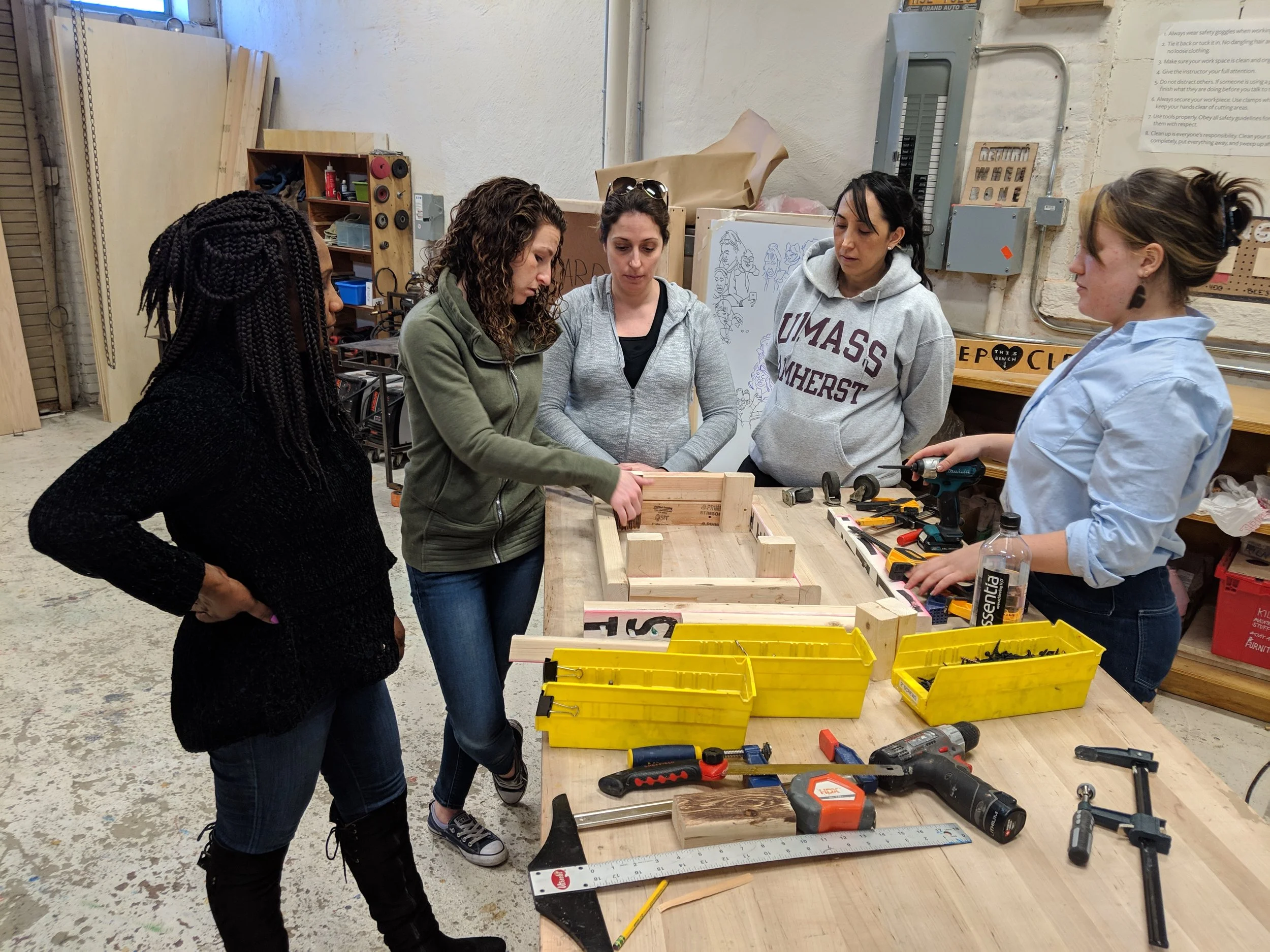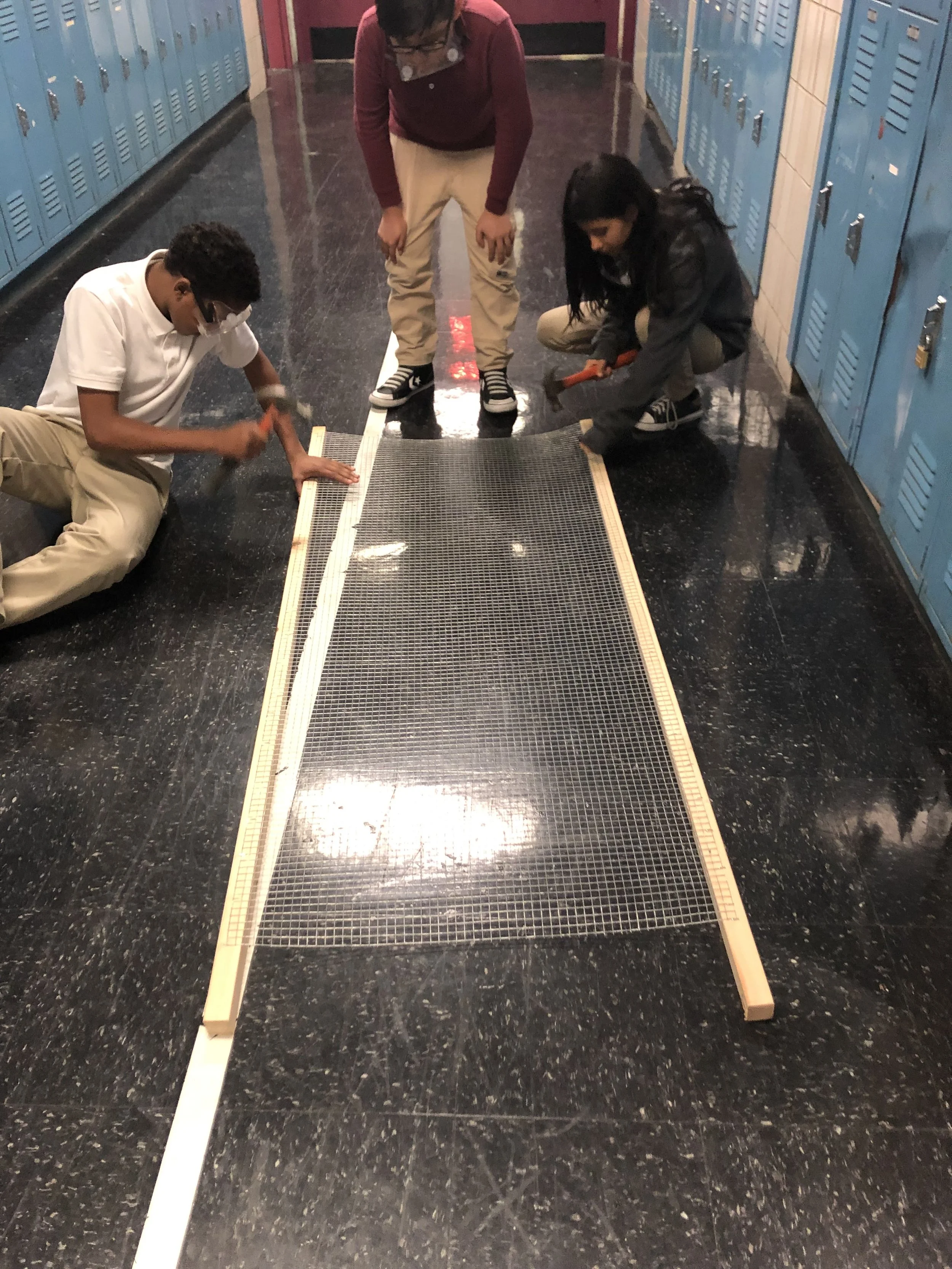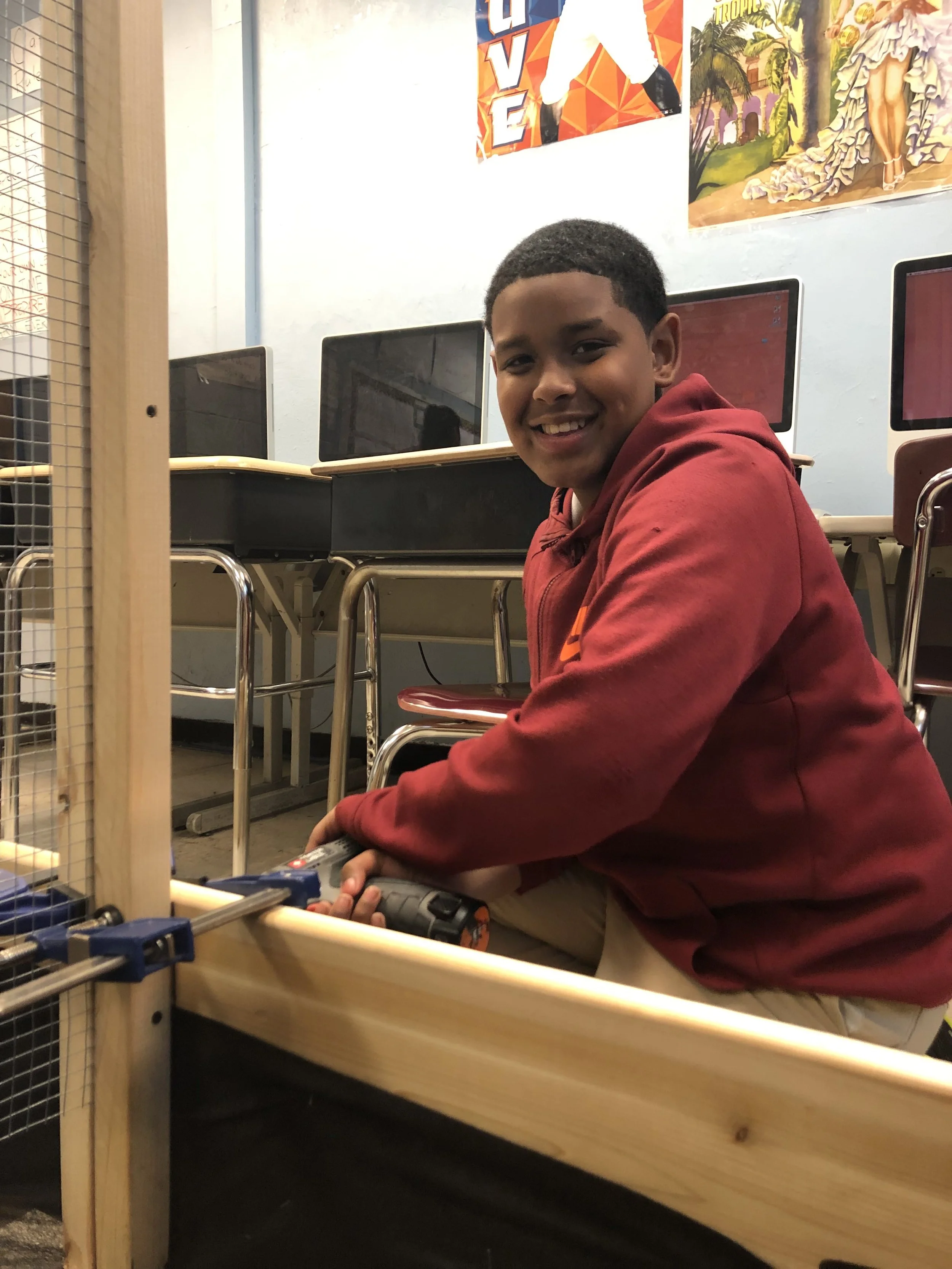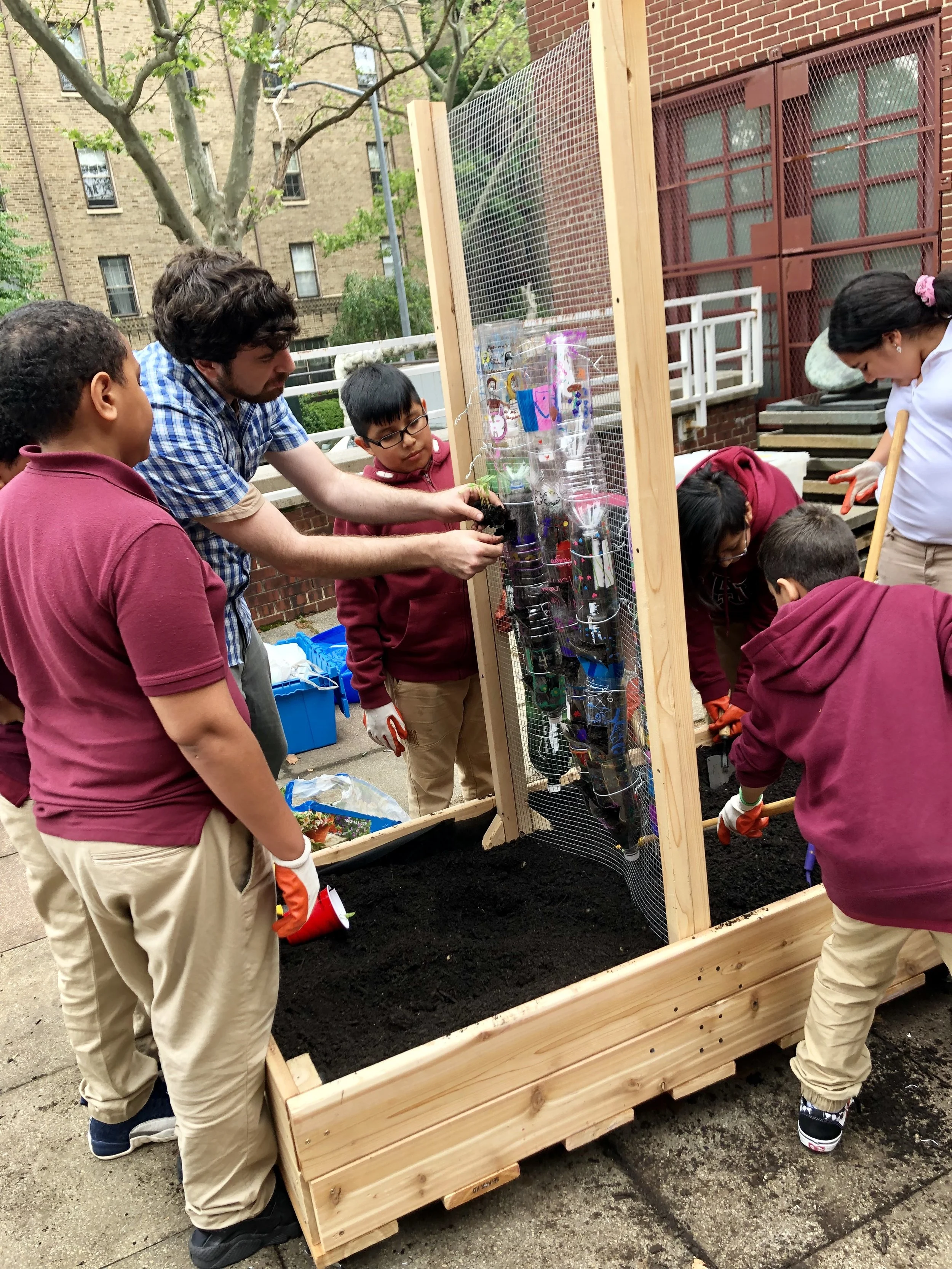Vertical Gardens
6th & 8th Grade Science & Math | IS 145, Queens, NY
My Role:
Project Designer - I partnered with teachers in design research and prototyping during professional development sessions, then refined the prototype for classroom use. I attended all classroom build sessions, continually updated lesson plans based on student progress, helped design student roles, and supported students as they built the large-scale garden structures.
Project Description:
Two 6th grade sections and two 8th grade sections collaborated to build vertical garden beds that combined raised planters with bottle-tower irrigation systems. Designed for long-term use by the school, the gardens allowed students to grow food-producing plants such as herbs, beans, and lettuce while connecting lessons in ecology, sustainability, and applied math with hands-on making.
Design Approach:
Teachers wanted a project linking ecology with recycled materials and real-world gardening. Together, we built a small prototype in PD, which I later scaled up and improved for classroom use with casters, better drainage, and sturdier construction. Because this was a large collective build, I structured rotating student roles so that every participant could contribute, even when only a few at a time could use certain tools.
Project Sequence:
Students collected empty two-liter bottles to serve as irrigation towers.
In build sessions, they measured, cut, and assembled wooden frames while rotating through roles (measuring, sawing, drilling, stapling, project management, and bottle prep).
Classes constructed two large garden beds, incorporating bottle towers for vertical planting.
On the final day, students wheeled the beds to the school roof, filled them with soil, and planted seedlings in a celebratory event.
Student Learning Outcomes:
Practiced measurement, sawing, drilling, and tool use in a collaborative build.
Learned about soil, plant selection, and irrigation systems through research and planting.
Explored sustainability concepts by repurposing recycled bottles.
Experienced the structural and logistical elements necessary for a large-scale building process.
Connected ecology concepts to tangible growing systems.
Took pride in creating a living system for the school community and celebrating its completion together.









